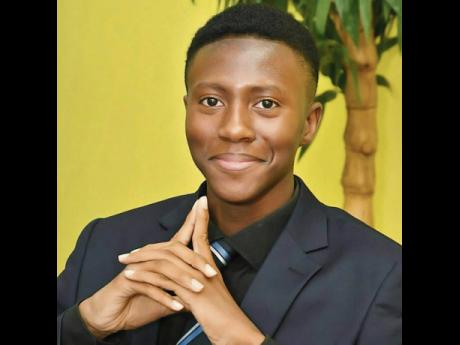
Latest Election News
Can The Parties Attract Young People To The Polls? - First-Time Voters Weigh In On Election Pledges
By:
Source: Jamaica Gleaner

Image caption: Bobby Francis
Young voters represent a major voting bloc that the two major political parties have sought to attract during this election campaign. For many, this electoral cycle has been a refreshing experience, as they believe greater emphasis has been placed on the pledges made by those seeking to lead the nation.
With the political parties making their final pitch before Thursday’s polls, The Sunday Gleaner spoke with several first-time voters who gave their views on the promises made in the parties’ manifestos.
For Saneisha Parsons, a number of campaign promises caught her attention. These included the People’s National Party’s (PNP) pledge to introduce paternity leave, the Rent-To-Own programme, increasing working-class pension opportunities and the single-income home mortgage. While for the Jamaica Labour Party (JLP), she was interested in their proposals to decrease student loan interest rates, reduce Jamaica’s vulnerability to natural disasters and increase green spaces.
Parsons believes that exercising her franchise is the best way to engage in the political process. “We can’t leave it up to the ‘die-hearted’ folks to decide who will govern the country, so I intend to vote,” she declared.
Youth parliamentarian Nahjae Nunes also believes in exercising his franchise.
“I will vote because in the last election cycle, I was not able to participate in exercising my democratic right due to my age. This time around I will definitely do so, as COVID-19 recovery is of utmost importance. Us building back better, building back greener, building back stronger, is something I think will be the defining factor of our next government,” he shared.
Nunes identified that some of the pledges he is most interested in include the JLP’s $20-billion public/private COVID-19 recovery equity fund and the 10,000 affordable homes for young people. On the other hand, for the PNP, he likes the Students’ Loan Bureau moratorium for civil servants such as nurses, teachers and police officers.
Nunes, however, bemoaned the lack of clarity with certain promises. He opined, “I just wished that the goals were more ‘SMART’: meaning, specific, measurable, attainable, relevant and time-based. A lot of terms in the manifestos were very ambiguous, or the goals and ambitions were just so desultory, large and generic, it was hard to say how exactly they plan to achieve this.”
PROMISE OF RECOVERY
Youth leader Bobby Francis also echoed this sentiment as he argued that making deliverable promises is essential to economic and social recovery.
He said, “Governments have over the years been attributed with making a plethora of promises; however, what new voters will be looking at, with more focus, is the promise of recovery.”
To achieve this objective, examining the manifestos is essential for young voters. Francis explained that both manifestos presented interesting promises, with one catching his interest due to its format.
“What I loved about both manifestos is the promise of a diversification of economy to drive growth. I also loved the idea of closing the digital divide, and the promise of the first child getting the opportunity to go to university is one that would appeal to every voter, regardless of their situation. One thing that was very impressive as well was that one of the campaigns had a personalised platform based on your interest,” he said.
Despite this, Francis felt that one of the manifestos was disappointing, as it lacked a comprehensive discussion of issues, which left him “reminiscing on the bad old days of empty promises”.
Ayanna Suckoo highlighted some of the pledges she liked from both parties.
“I loved that the JLP talked about the increase in rural job creation because there isn’t a lot of opportunities to be presented to persons within these areas. With the PNP’s manifesto, I love that they will be providing health insurance and counselling for security forces. I also love that the teachers will receive grants to facilitate their work-from-home. However, their plans were not as detailed, just giving some points that they will do,” she noted.
For Suckoo, comparing manifestos is crucial in making a decision as a voter. She said, “I think people are not as informed as they should be in voting. We need to exercise our right to vote, that is the only way we can have an input in the direction of our country, so we need to take the initiative to vote. I think it is important for persons to get out there and be informed when they vote.”
Join the Discussion
#JaVotes2020 TweetsElection News
PNP Still Reeling From Previous Bitter Contests - New Leader Urged To Foster Unity
Internal campaigns have planted seeds of political division in the People’s National Party (PNP), leaving it badly damaged since 1992, but the temperature has risen exponentially in leadership races since, according to the party’s longest-s
#PNPvotes | Full Text: Lisa Thanks Supporters, Congratulates Golding
Defeated People's National Party (PNP) presidential candidate Lisa Hanna has said thanks to her supporters in Saturday's election. Hanna, the St Ann South Eastern MP was beaten by Mark Golding, the St Andrew South MP, by 296 votes. There was...
#PNPvotes | The Work Begins Tomorrow, Says Victorious Golding
Newly-elected president of the People’s National Party Mark Golding says he is ready to take on a bold new era in the 82-year-old organisation and the work begins tomorrow. Golding was speaking at the party’s Old Hope Road Headquarters...&l

 Hotline
Hotline